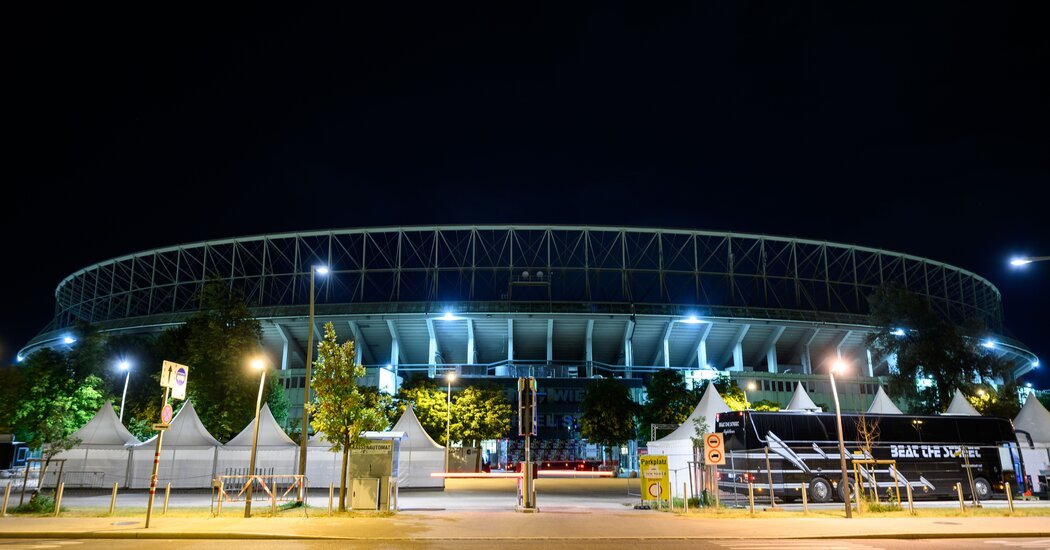The C.I.A. provided intelligence to Austrian authorities that allowed them to disrupt a plot that could have killed thousands of people at a Taylor Swift concert in Vienna this month, the agency’s deputy director said on Wednesday.
David S. Cohen, the deputy director of the C.I.A., said the agency had provided information about four people connected to the Islamic State who were planning an attack. Some of the individuals arrested were found with bomb-making material and had access to the concert venue, where several shows were scheduled to take place in the days after the arrests.
“They were plotting to kill a huge number, tens of thousands of people at this concert, I am sure many Americans,” Mr. Cohen said at the annual Intelligence Summit just outside Washington, D.C. “The Austrians were able to make those arrests because the agency and our partners in the intelligence community provided them information about what this ISIS-connected group was planning to do.”
On Aug. 7, Austrian authorities arrested two people accused of plotting a terror attack; others were arrested in subsequent days. Austrian officials said one of the men, a 19-year-old Austrian, had pledged allegiance to the Islamic State and had focused on Ms. Swift’s tour as a target.
Mr. Cohen expressed no doubt that attacking the Eras Tour concert and killing a large number of concertgoers was the goal of the plot.
He did not say how the C.I.A. had learned about the planned attack. But intelligence agencies have previously alerted other countries about terrorist plots. Earlier this year, U.S. officials warned authorities in Iran and in Russia that the Islamic State’s Afghanistan-based affiliate, known as ISIS-Khorasan, intended to strike events — a memorial service in Iran and a concert in Moscow — though neither country was able to stop those attacks.
Ms. Swift had been planning to hold three concerts in Vienna beginning Aug. 8, and 200,000 people had been expected to attend. Last week, in a social media post, she thanked the authorities, saying that because of them, “we were grieving concerts and not lives.”
Mr. Cohen said counterterrorism warnings do not always get a lot of attention. But the action to stop the attack in Austria, which potentially saved hundreds of lives, he said, was different.
“I can tell you within my agency and others, there were people who thought that was a really good day for Langley,” he said, referring to the C.I.A. headquarters. “And not just for the Swifties in the workforce.”
Speaking at the same conference in 2021, Mr. Cohen said the challenge after the American withdrawal from Afghanistan would be to know whether the Islamic State or Al Qaeda would “have the capability to go to strike the homeland” before they could be detected.
He promised then that the C.I.A. would find ways to rebuild its intelligence on Afghanistan, suggesting that the efforts could include “over the horizon” collection by long-range drone and talking to informants in the country.
On Wednesday, Mr. Cohen acknowledged recent successes in thwarting Islamic State Khorasan but said it was harder to do now that the United States did not have a military presence in Afghanistan.
“We figure out how to execute our mission even when it is difficult,” he said.
Mr. Cohen said the C.I.A.’s ability to collect intelligence on threats from Afghanistan was not as strong as it was five years ago, but he said the agency and its partners were still able to “defend the homeland and unravel terrorist plotting.”
Read More: C.I.A. Warning Helped Thwart ISIS Attack at Taylor Swift Concert in Vienna


